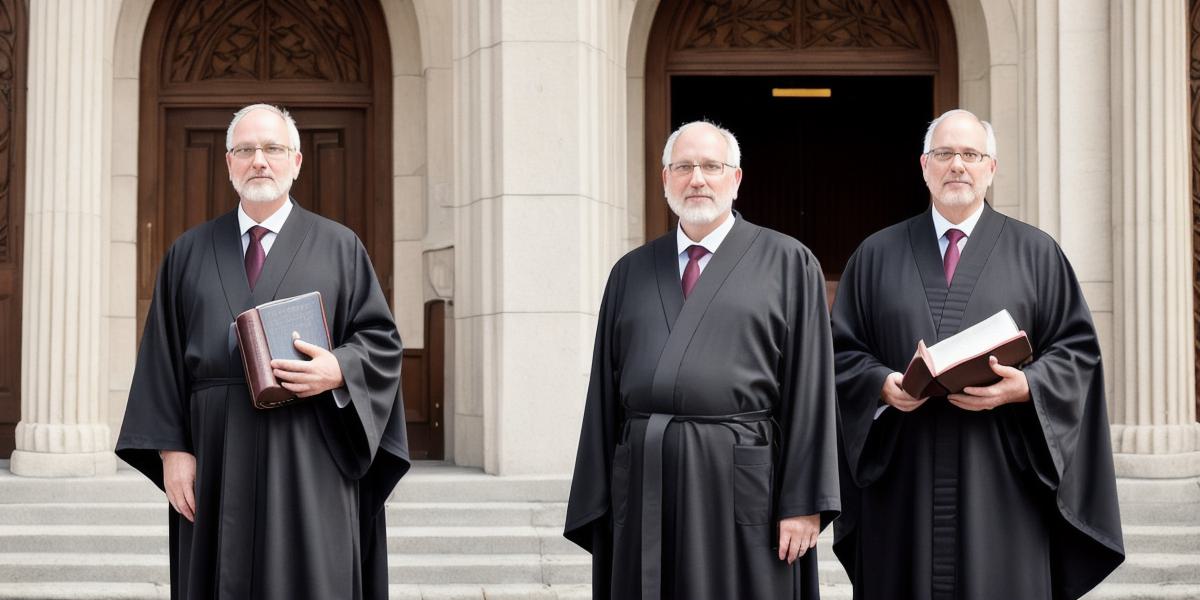Introduction
The modern world is often characterized by secularism, a system that prioritizes reason and science over religion. As Christians, navigating this world can be challenging, as our beliefs may not align with the majority of society. In this article, we will explore some common pitfalls that Christians face when living in a secular world and provide guidance on how to overcome them.
Pitfall 1: Isolation from Non-Believers
One of the most significant challenges that Christians face in a secular world is isolation from non-believers. The modern culture often values diversity and inclusivity, but when it comes to faith, it can be challenging to find common ground with those who do not share our beliefs. This isolation can lead to feelings of loneliness and disconnection, which can make it difficult for Christians to build meaningful relationships and find a sense of community.
To overcome this pitfall, Christians must actively seek out opportunities to connect with non-believers. This can include joining community groups, volunteering, or attending social events. It’s important to be open and honest about our beliefs while also respecting the beliefs of others. By building relationships based on mutual respect and understanding, Christians can find a sense of belonging in a secular world.
Pitfall 2: Confirmation Bias and Echo Chambers
Another common pitfall that Christians face is confirmation bias and echo chambers. We often seek out information that confirms our existing beliefs, while ignoring or dismissing information that contradicts them. This can lead to a lack of critical thinking skills and an inability to consider alternative perspectives.
To overcome this pitfall, Christians must actively seek out information from a variety of sources, including those that challenge their beliefs. It’s important to be open-minded and willing to listen to and learn from others. By exposing ourselves to diverse viewpoints, we can develop a more nuanced understanding of the world around us and become better equipped to engage with non-believers in meaningful ways.
Pitfall 3: Fear and Intolerance
Fear and intolerance are also common pitfalls that Christians face in a secular world. It can be easy to feel threatened by those who hold different beliefs, which can lead to feelings of fear and mistrust. This can manifest as intolerance towards others, which can damage relationships and make it difficult to build bridges across religious divides.
To overcome this pitfall, Christians must remember that fear and intolerance are not virtues. Instead, we must cultivate a sense of compassion and understanding for those who hold different beliefs. By focusing on our shared humanity rather than our differences, we can develop stronger relationships with non-believers and create a more inclusive and harmonious world.
Case Study: The Evangelical Christian’s Guide to Navigating a Secular World
One example of a Christian navigating a secular world is the Evangelical Christian’s Guide to Navigating a Secular World, which offers practical advice and guidance on how to engage with non-believers in meaningful ways. The guide emphasizes the importance of building relationships based on mutual respect and understanding, while also providing tips for overcoming common pitfalls such as confirmation bias and fear.
By following the guidance provided in this guide, Christians can develop the skills they need to navigate a secular world with grace, compassion, and understanding. The guide also offers real-life examples of how Christians have successfully engaged with non-believers and built strong relationships despite their differences.

Research and Expert Opinions
According to a study by the Pew Research Center, 71% of Americans believe that people of different faiths should be able to express their beliefs freely in public without fear of retaliation. This suggests that many Americans value religious diversity and are open to engaging with people of different beliefs.
An expert in religious studies, Dr. William A. Richards, recommends that Christians focus on building relationships based on shared values and common ground, rather than trying to convert others to their faith. By focusing on these shared values, he believes that Christians can create a more inclusive and harmonious world.



